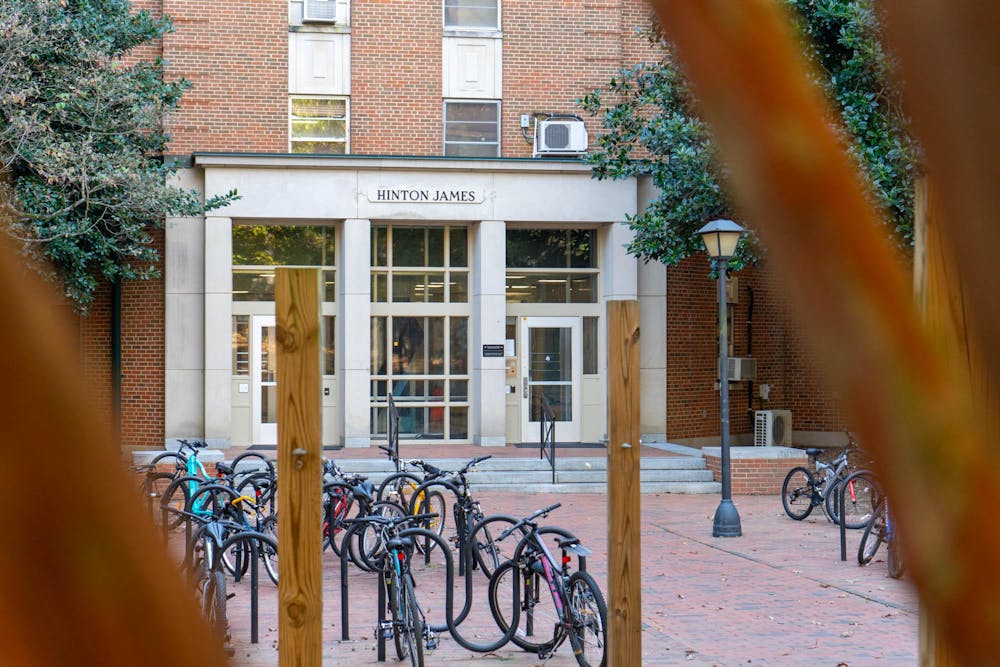This year, Carolina Housing is partnering with the UNC School of Social Work to provide a new resource to support Hinton James residents: WellBeing Coaching.
The program allows students who live in the first-year residence hall to meet with two WellBeing coaches who are master's students in the School of Social Work. They meet one-on-one to discuss challenges the resident might be facing, including difficulty managing stress, time, academics and relationships.
One of the WellBeing coaches, Devon Pelto, is also a coach for another peer well-being program already offered within the School of Social Work. She said her role as a WellBeing coach is an internship for the program and is an extension of the work already being done.
Pelto described the program as a way for students to talk through challenges they are facing with a nonjudgemental third party and make action plans for tackling those challenges.
“It's really just a thinking partner helping people see things from all different kinds of perspectives,” she said. “So it's really not me giving advice, it’s more of asking them questions so that they can bring their own wisdom out and get clarity on whatever it is.”
Megan FinCannon, associate director of residential living at Carolina Housing, said WellBeing coaches provide more support than resident advisors, but the program is less formal than the University's Counseling and Psychological Services.
“We're hoping having WellBeing coaches that students can access in the residence halls can help bridge that gap and maybe make it where less people need to go to CAPS,” they said. “You talk through some of the things you needed, you got your feet underneath you and now you're good to go.”
FinCannon helped launch the WellBeing program in Hinton James and said the idea for the program came from meetings with the Residence Hall Association in 2021, which advocated for more support for students.
“It seems like a lot of us students seem to be struggling,” Pelto said. “And we're just hoping that this is one small way that we can fill that gap between what students need and what's actually available for them on campus.”



